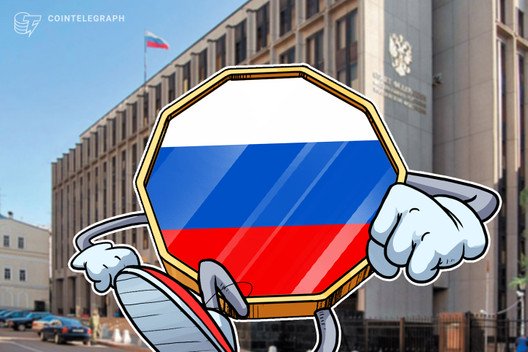The Prime Minister of the Russian Federation has called on the country to prioritize the development of the digital economy.
As domestic news outlet RIA Novosti reported on Jan. 16, Mikhail Mishustin — who was confirmed in the position as the Prime Minister earlier today — noted some key priorities for his work and outlined the need for institutional reforms in Russia.
Mishustin said that the country should implement modern information technologies, including the development of a national digital economy program, adding:
“The state should become a digital platform that is created for people.”
Mishustin gave his statement after the government and Russia’s former Prime Minister Dmitry Medvedev announced that they were resigning. The decision was taken amid Russian President Vladimir Putin’s message to the Federal Assembly, in which he outlined a number of fundamental changes to the country’s constitution.
Blockchain plays an important role with major firms in Russia
Major Russian firms, including some in which the state holds a significant stake, are beginning to test and apply blockchain tech to various aspects of their operations.
Last December, Russia’s national energy grid operator Rosetti began testing a blockchain solution for payments in the retail electricity sector to automate and make transactions between energy producers, suppliers and consumers more transparent.
In November of last year, Russia’s largest bank, the majority state-owned Sberbank, pioneered a blockchain solution for repurchase agreements. The bank had been awarded a patent for the solution, which uses smart contract technology to automate repo transactions between parties.
Major players in the cryptocurrency and blockchain space have also praised Russia’s role in the industry’s development. Last year, the CEO of major cryptocurrency exchange Binance, Changpeng Zhao, praised the programming talent coming out of the country and named Putin as the most influential person in the blockchain industry.
Russia still lacks clear standards for crypto
Meanwhile, digital currencies still do not have solid legal ground to stand on in Russia. There have been numerous attempts to define cryptocurrencies legally over the past years. At different times, Russian lawmakers have been urged to introduce a regulatory framework by President Putin (twice), the local Supreme Arbitration Court and the Financial Action Task Force.
In May 2018, the crypto bill titled “On Digital Financial Assets” was passed by the Russian parliament but was soon sent back to a first reading due to a lack of definitions for key concepts, such as crypto mining, cryptocurrencies and tokens.
Ban on crypto and confiscation of Bitcoin
Moreover, in November of 2019, news broke that Russia was allegedly preparing a ban on the use of cryptocurrencies to pay for goods and services. The press department of Russia’s central bank commented on the issue: “If a decision is made to ban cryptocurrencies as a means of payment at the level of legislation, we consider it appropriate to support this position.”
That same month, Cointelegraph reported that Russia was allegedly planning to create legal statutes allowing the police to achieve the impossible: the confiscation of Bitcoin (BTC).




Comments (No)